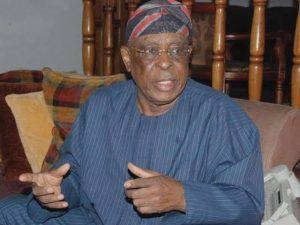To fall in love with Nigeria is to embrace contradiction incarnate. The world covets her people, her rhythms, her unbreakable energy—yet many of her citizens spit upon the very soil that birthed them. It is a tragedy of self-negation, a collective amnesia, where the wealth of heritage is obscured by the cataract of contempt.

Foreigners see what Nigerians ignore. Across Europe, the United Kingdom, and the United States, workers from Nigeria are courted for their tenacity; spiritual monuments attract pilgrims from afar; and Nigerians are desired as life partners for their vibrancy and resilience. Yet within the homeland, such gifts are misaligned, mocked, maligned, and dismissed. When Charlie Kirk’s passing filled a stadium in America, respect resounded. But should an equal son of Nigeria fall, many would rush to bury him—not out of reverence, but to prematurely seal his grave with derision. Who bewitched us with this curse of self-desecration?
Still, the world’s fascination with Nigeria is inexorable. Afrobeat pulsates in New York and Paris; Nigerian Celebrities and intellects commands screens in London; Lagos startups woo Silicon Valley investors. As Barack Obama once declared, “The world is watching what you do, not just what you say.” And indeed, the world watches, applauds, and invests—while too many Nigerians avert their gaze in shame.
Advertisement

To order your copy, send a WhatsApp message to +1 317 665 2180
At the heart of this paradox lies a failure of pride. Nigeria is a symphony of over 250 ethnicities, a living archive of languages, mythologies, and cuisines. Abroad, such multiplicity would be hailed as cultural opulence; at home, it festers into division. Nelson Mandela’s warning reverberates: “Resentment is like drinking poison and then hoping it will kill your enemies.” Nigeria’s poison is self-hatred, and it corrodes the very foundation of its promise.
History instructs with ruthless clarity. Nations that learned to valorize their essence—Japan, South Korea, Brazil—rose from the ashes of disdain to command respect on the global stage. Nigerians must heed Maya Angelou’s immortal truth: “We delight in the beauty of the butterfly, but rarely admit the changes it has gone through to achieve that beauty.” Nigeria must admit its scars, confront its flaws, and still declare itself beautiful.
To love Nigeria, then, is no soft sentimentality. It is radical defiance. It is the audacity to cherish what the world already recognizes but what citizens themselves deny. The question is no longer whether the world loves Nigeria—the evidence is overwhelming. The question is whether Nigerians will finally dare to love themselves, without apology, without hesitation, without contempt.
















